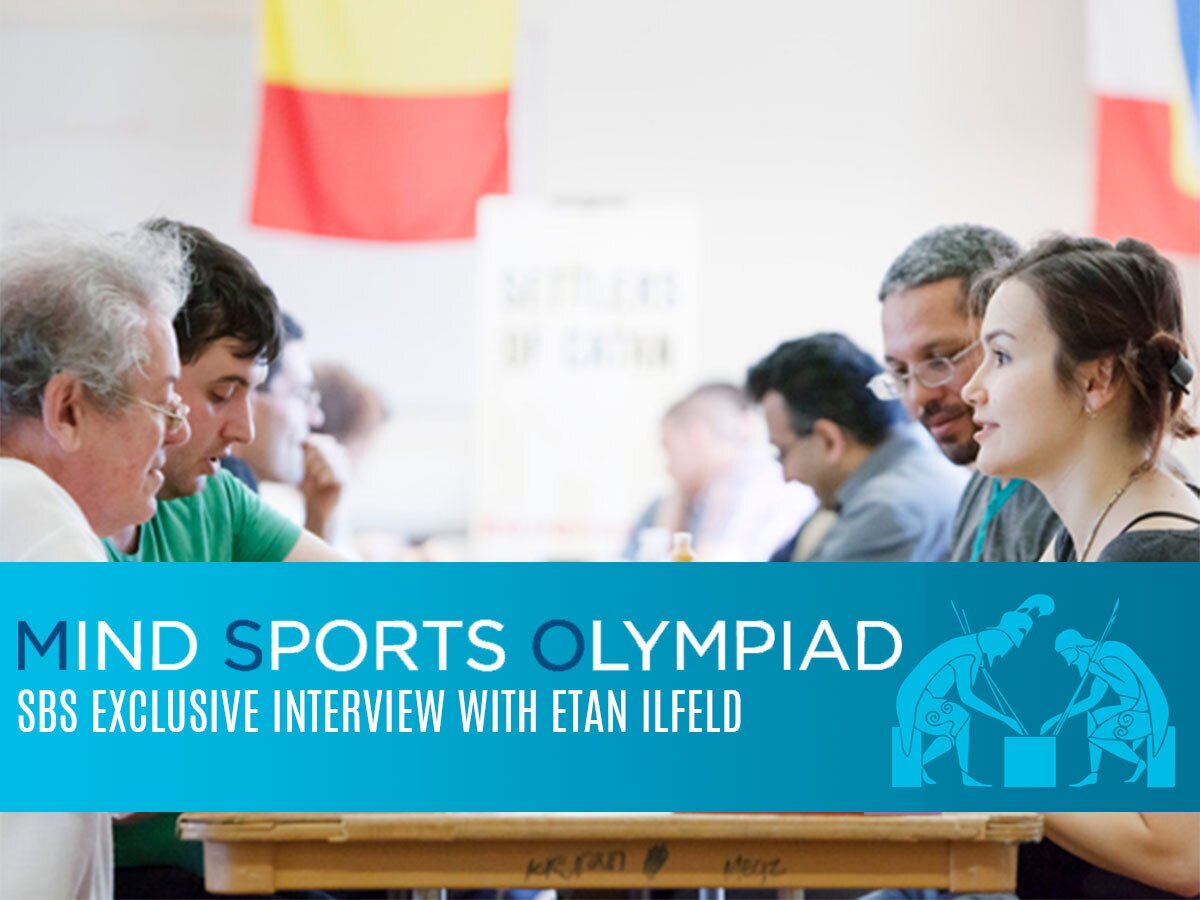
Mind Sports Olympiad – A Different Kind Of Sporting Event
You may be wondering, what is the Mind Sports Olympiad?
The Mind Sports Olympiad (MSO) is a series of events where people with great minds compete against each other in challenges that test the most significant muscle humans have, the brain.
You could equate MSO to the Olympics, where you encounter mind athletes competing for the gold and glory. The original creatores were David Levy, Tony Buzan and Ray Keene in 1997.
SafestBettingSites prides itself on covering all kinds of sporting events. With such a unique approach, we decided to interview the current director of the Olympiad, Etan Ilfeld.
Basic Olympiad Information You Should Know
The MSO is a yearly event, taking place in August and lasts about eight days.
There are over 50 events within the MSO. You can find these events in Men’s, Women’s, and even Junior categories. Some of the main events include:
- Pentamind World Championship
- Eurogames World Championship
- Chess Diving World Championship
- Settlers of Catan Olympiad Championship
- Mental Calculations World Championship
- Mastermind Olympiad Championship
Now that you have a basic scope of what the Mind Sports Olympiad has to offer, let’s see what answers Etan has for us.
What makes MSO such an interesting series of events to participate in or even watch?
What is the biggest event of the MSO? What makes it the biggest?
Catan is our biggest and most popular event. It really is the gold standard of Eurogames and we have competitors of all ages (often as young as 6!).
We had about 70 competitors last year in the Catan tournament.
There are over 50 different events in the MSO, which would you consider to be the most difficult for contestants?
Some games are much harder to master than others but all of the events are challenging.
Entropy has a world-class field and takes a lot of depth to master.
Similarly, Quoridor and Mensa Connections are very strong events.
The different variety of chess games were interesting, what was the idea behind these?
Chess is such a great game on its own, but when you mix it up with variants from Bughouse (aka exchange chess) to Colored Chess you create a new space where standard chess players can beat grandmasters.
Monster Chess was extremely fun this year and a highly recommended variant!
Do you think the events in the MSO could be considered to be part of the “sports” world? Why?
This is a tough question that can open a lot of philosophical debates as to what constitutes a sport.
One event that I’m sure is a sport at MSO is Diving Chess, which is played in a swimming pool such that each player can think for each move for as long as they can hold their breath.
How competitive can these events become?
I think there’s a long way to go before most of the events could be professional events, but they are already extremely competitive.
As we increase our Livestream viewership, then we should hopefully get a new generation of competitors who will increase the strength of the field even more so.
It is an “Olympiad,” do you see these types of mind games making it into regular sporting events, like in the Olympics?
I don’t think so. Mind Sports are quite different from sports in the Olympics.
Perhaps, an argument could be made regarding Diving Chess, but I doubt that standard chess and games like Go would ever be part of the Olympics.
That being said, there are already Chess Olympiads and other types of Olympiads that celebrate Mind Sports including the Math Olympiad.
Where do you see the MSO in another 10 years?
I hope that we’ll continue to grow both in terms of numbers and visibility and that MSO will continue to inspire people to learn and play games.
Can you tell us about your latest book, Duchamp Versus Einstein?
 I co-wrote this novelette with Christopher Hinz, who is an amazing science fiction writer.
I co-wrote this novelette with Christopher Hinz, who is an amazing science fiction writer.
Duchamp Versus Einstein spans some of the most monumental events of the first half of the 20th century and brings together two transformative figures of the era in art and science for a surreal chess match that reshapes history.
Both Duchamp and Einstein played chess. Duchamp’s first wife was so jealous of his passion for chess that she glued his chess pieces to the board, which made him precipitated the end of their short-lived marriage.
Einstein played chess with his first wife, Mileva Maric, who was also a physicist. It’s a lot of fun and takes place in New York, Paris, Bern, Princeton, and Buenos Aires.
It’s just come out and is available on Amazon and Kindle.



